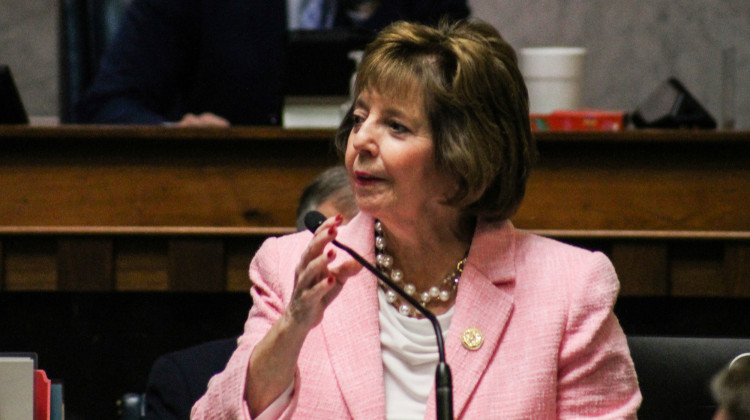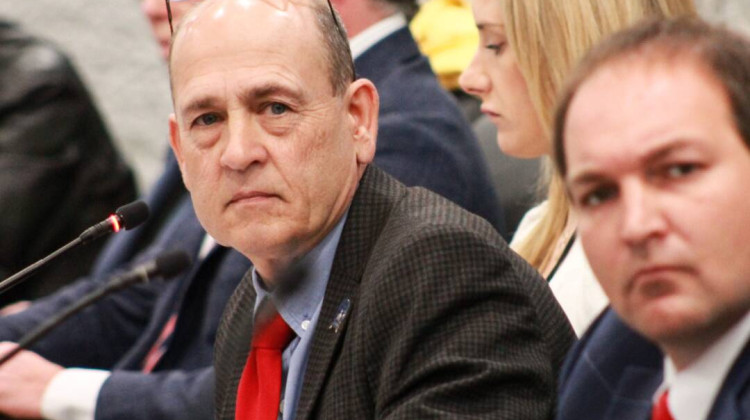
School superintendents would not be required to have advanced education degrees under a bill authored by Sen. Linda Rogers (R-Granger).
Lauren Chapman / IPB NewsA bill that would reduce education requirements for school superintendents passed the Senate this week. Under SB 366, superintendents would be preferred, instead of required, to have at least a master’s degree in education.
Sen. Linda Rogers (R-Granger) is the bill’s author. She said school corporations manage millions of dollars and many employees, similar to a business, so business professionals should be allowed to apply.
The bill would open superintendent positions to all professions, but Rogers said she envisions CEOs or professionals with masters of business administration degrees filling those spots.
“Now whether the school board would hire them, I don’t know. But at least it gives them that opportunity,” she said.
Sen. Jean Leising (R-Oldenburg) questioned Rogers on the need for the bill.
“Even in some of my schools that aren’t very big, they have a financial officer that deals with that part of it, and I think of the superintendents as dealing with more of the educational requirements,” she said.
Join the conversation and sign up for our weekly text group: the Indiana Two-Way. Your comments and questions help us find the answers you need on statewide issues, including our project Civically, Indiana and our 2025 bill tracker.
The bill received some backlash in committee, mostly from Democratic lawmakers, who said schools are not businesses and superintendents need education experience.
The measure also contains several other provisions. One of those requires the Indiana Department of Education to determine how public schools can access On My Way Pre-K funding without the Child Care and Development Fund, a federal program. States use it to provide low-income families with money for child care and early learning.
Federal cuts, especially attempts to dissolve the U.S. Department of Education, have left the future of some federal programs uncertain.
Despite concern from some lawmakers, the bill passed 30 to 16. It now heads to the House for consideration.
Kirsten is Indiana Public Broadcasting's education reporter. Contact her at kadair@wfyi.org or follow her on Twitter at @kirsten_adair.
 DONATE
DONATE






 Support WFYI. We can't do it without you.
Support WFYI. We can't do it without you.